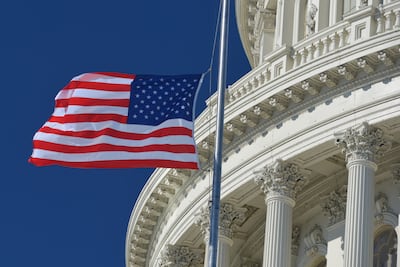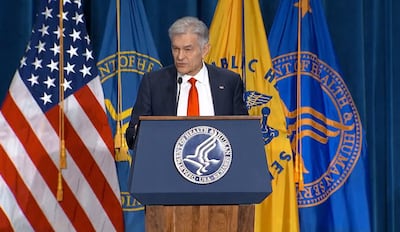The Trump administration has launched TrumpRx, a website the White House says could help save Americans billions in pharmaceutical spending, although it does not itself sell or dispense drugs.
The sales opportunity in Medicare Part D and Medicaid arrives as Lilly and Novo Nordisk face a new competitive threat from compounded semaglutide for obesity.
The US Labor Department also added a proposed rule requiring PBMs to disclose additional compensation information to certain employer-plan sponsors.
The HHS OIG advisory pertains to manufacturer sales to patients. OIG will seek stakeholder input regarding possible additional guidance on manufacturer arrangements with pharmacies, pharmacy benefit managers, telemedicine vendors and marketers.
The process will pit breast cancer treatment competitors Kisqali and Verzenio against each other as CMS develops pricing offers.
Enactment of a law delinking PBM compensation from list prices would still be a long-sought victory for pharma.
Heavy hitters Keytruda and Opdivo got a pass in the third round of price negotiation because of the expanded orphan drug exemption in President Trump’s One Big Beautiful Bill.
While drug manufacturers are unlikely to “pull out of the EU entirely,” geopolitical shifts driven by US tariff threats will mark a “categoric shift” as big pharma tries to “placate the Trump administration,” an analyst says.
BMS's Lenkowsky discussed the impact of the company's MFN deal in an interview at the J.P. Morgan Healthcare conference.
The plan does not include many details, but is intended to help Congress draft legislation ensuring Most Favored Nation drug pricing agreements can be made, as well as implement measures intended to lower insurance premiums.
The agency is "reconsidering" manufacturer plans for the 340B rebate model in light of court decisions imposing a temporary stay on implementation.
The announced agreement means AbbVie and Regeneron are the only companies of the 17 notified by the White House in July yet to make a deal.
The agency is considering setting a payer participation ‘threshold’ to meet before the model goes into effect.
The impact predicted by the Centers for Medicare and Medicaid Services indicates the model would fall short of its expressed purpose.
GLOBE resurrects Trump’s 2020 effort to try aligning Medicare Part B prices with lower prices abroad, but key aspects of the model have evolved and are noteworthy even if the demonstration does not advance as planned.
The health technology assessment institute said its recommendation for the multiple sclerosis drugs, Tysabri and Tyruko, highlighted its continued efforts to drive the adoption of biosimilars across the National Health Service.
The French national assembly has adopted a version of the 2026 social security finance bill that includes price cuts and penalties for companies that adopt tactics to delay generic entry.
The US Centers for Medicare and Medicaid Services argued gender affirming care is not health care to help justify the new proposed rules. The argument could create a new opening for the federal government to go after other pharmaceuticals.
The FDA’s policies on analgesic labeling appear to be limiting the potential for novel non-opioid pain medicines to qualify for separate payments in Medicare after CMS said the indication must be for post-operative use.
The ‘day of reckoning’ for the outpatient drug discount program has arrived as annual spending continues its 20%-plus annual growth rate, Drug Channels’ Adam Fein said.




















